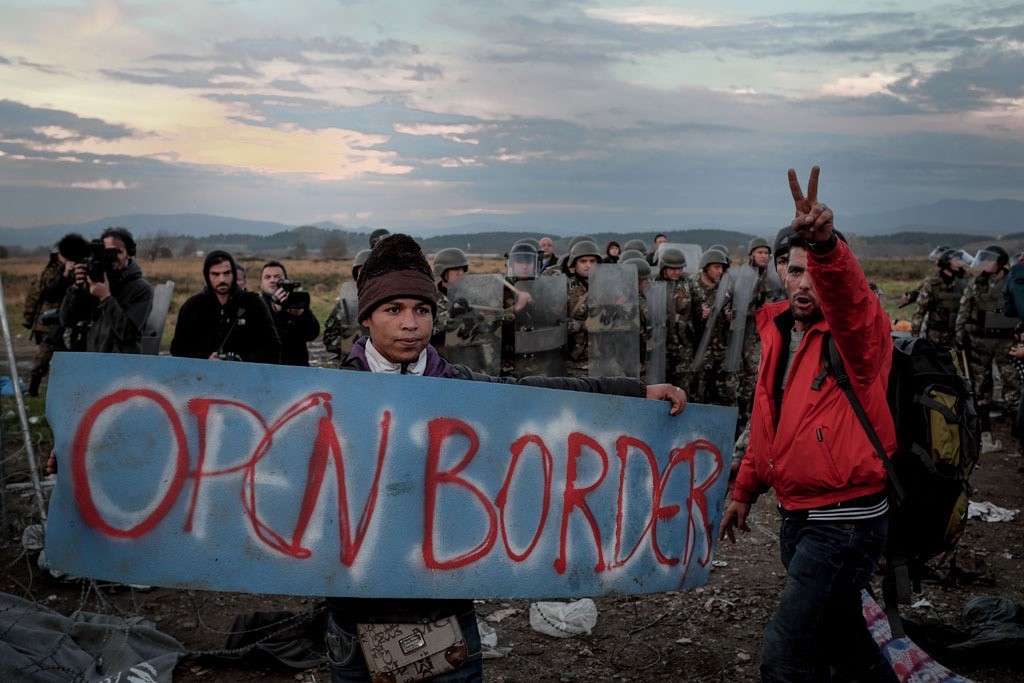
1 Mar, 2016
Europe’s restrictive measures place added hardships on refugees and asylum-seekers – UN
United Nations, 23 February 2016, (UN News Centre) – The United Nations refugee agency said today it is concerned by recent restrictive practices adopted in a number of European countries that are placing additional undue hardships on refugees and asylum-seekers across Europe, creating chaos at several border points, and putting particular pressure on Greece as it struggles to deal with larger numbers of people in need of accommodation and services.
In a press release, the Office of the UN High Commissioner for Refugees (UNHCR) said that the newest restrictive measures put in place by several European countries risk violating European Union (EU) law and undermine efforts for a comprehensive and coordinated approach to deal with the refugee and migrant crisis in Europe.
On 17 February, Austria announced it would place a daily limit of 3,200 people to enter its territory and only accept 80 new asylum applications per day. Slovenia announced a similar cap to restrict movements across its borders.
 In November 2015, refugees and migrants protest border restrictions near the Greek town of Idomeni, close to the border with the former Yugoslav Republic of Macedonia. Photo: UNICEF/Ashley Gilbertson VII |
In addition, on 18 February, the heads of police services of Austria, Slovenia, Croatia, Serbia and the former Yugoslav Republic of Macedonia announced an agreement to jointly profile and register refugees and asylum-seekers at the border between the former Yugoslav Republic of Macedonia and Greece, as well as take a number of additional actions to manage the situation.
“While coordinated action can help the management of the mixed migration movement, the statement has been interpreted differently by countries, resulting in increased protection risks for refugees and asylum-seekers, particularly those with specific needs, such as unaccompanied and separated children,” the UNHCR noted in its statement.
The risks include lack of proper registration in line with EU and international standards, the selection of people on the basis of nationality and other criteria rather than protection needs, and the heightened likelihood of pushbacks and people being stranded in the open.
Such practices also undermine the conclusions reached by the European Council last week recalling that to enter the EU without adequate travel documentation, people need to apply for asylum when reaching an EU country, UNHCR said.
The practices have already resulted in a build-up of refugees and asylum-seekers and migrants in Greece and in the former Yugoslav Republic of Macedonia, where nearly 700 people, mostly Afghan nationals, have been barred from accessing admission into Serbia.
In order to support a joint approach and to allay fears and potential chaos, States need to inform refugees and asylum-seekers of their procedures, including clear details on the criteria for access to admission, asylum or return, in line with applicable laws, the UN agency said.
“Some States are shifting problems onward rather than trying to genuinely share responsibility and show solidarity with one another and with those in need of protection,” UNHCR said. “A comprehensive, coordinated strategy built on shared responsibility, solidarity and trust among all European States working together is the only way to approach the current emergency.”
UNHCR added that it is making good progress in providing accommodation for 20,000 asylum-seekers in Greece, and will continue to provide support to States to help manage the situation humanely and in line with international standards.
The agency also urges the creation and expansion of credible alternative pathways for refugees to reach safety in Europe and elsewhere in order to ensure that movements are manageable and safe, such as enhanced resettlement, humanitarian admission, family reunifications and student/work visas.



Liked this article? Share it!